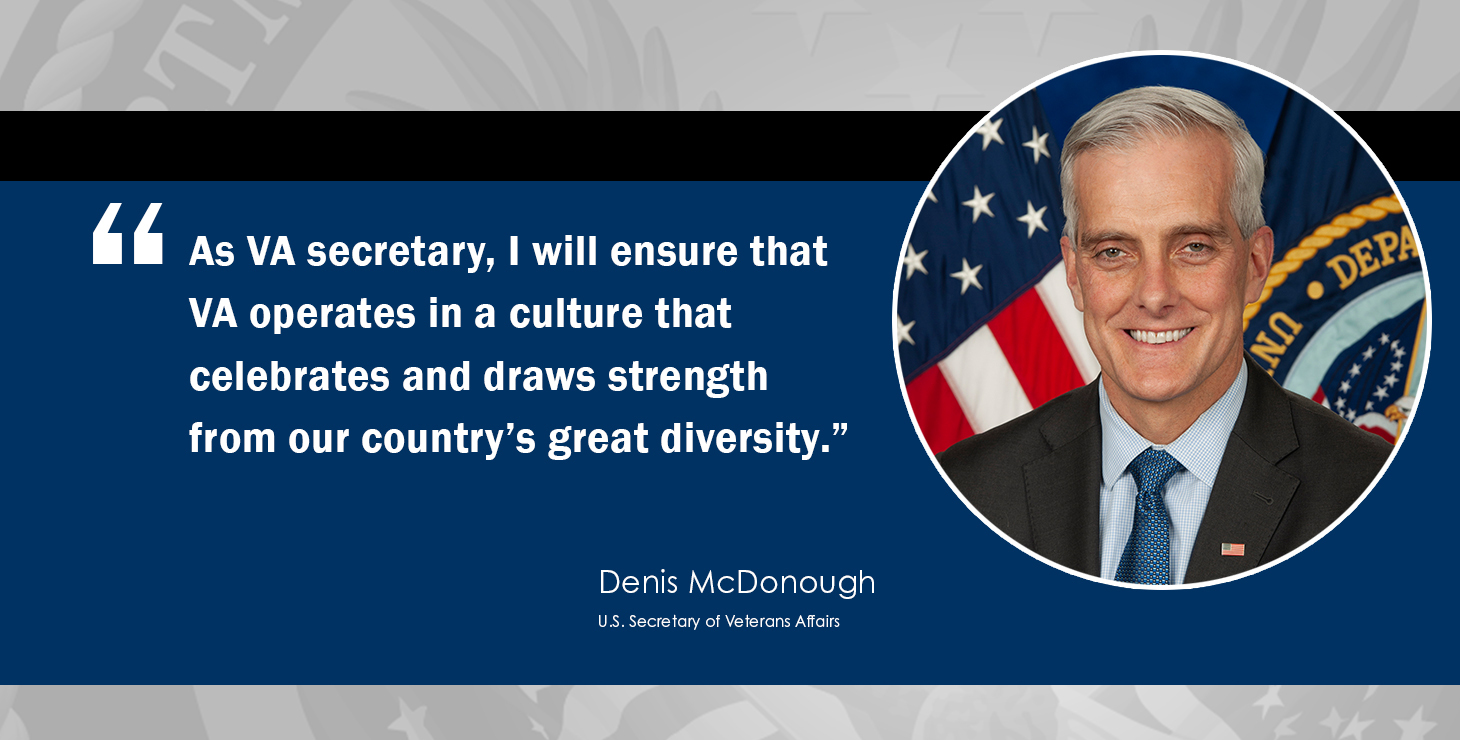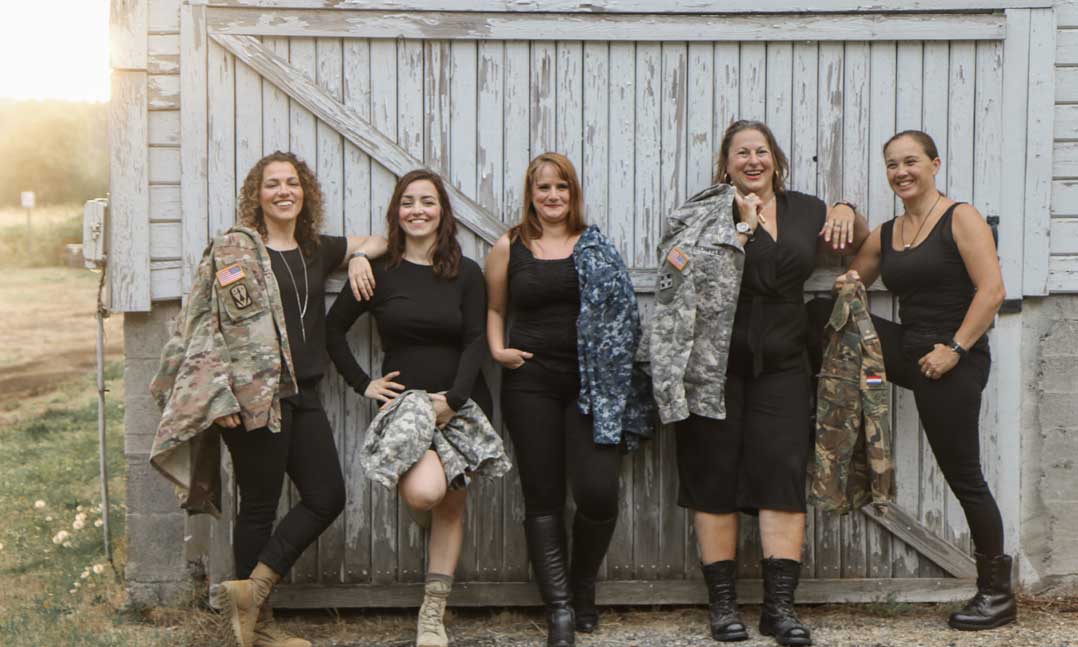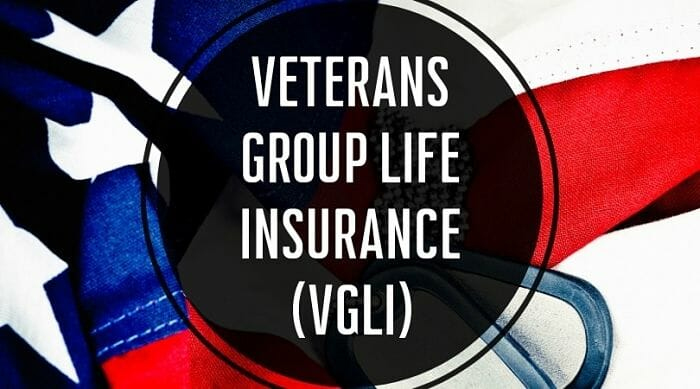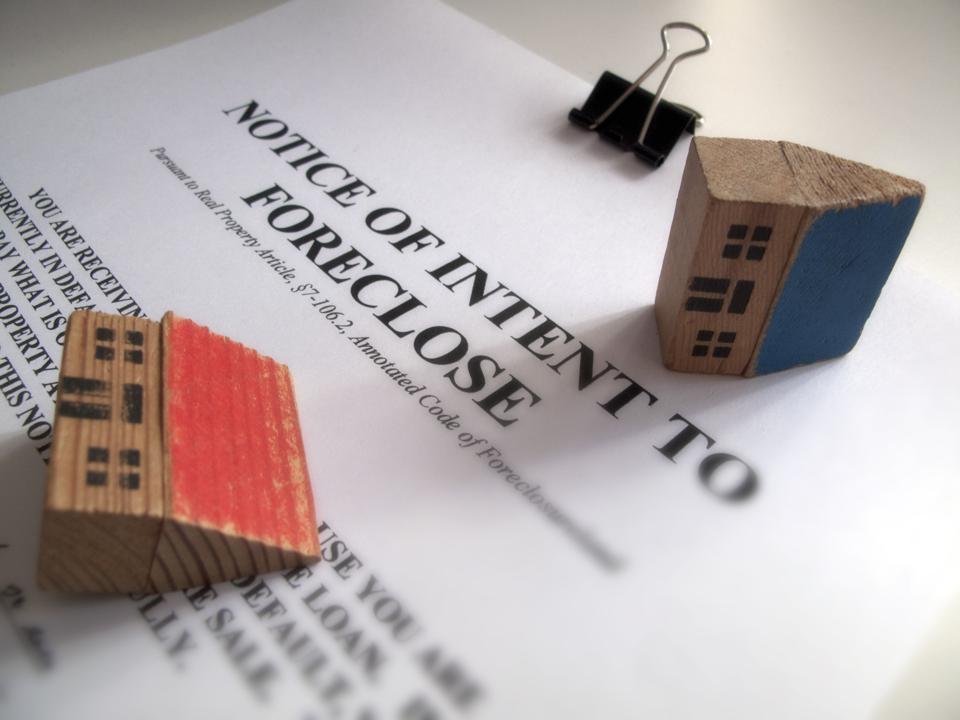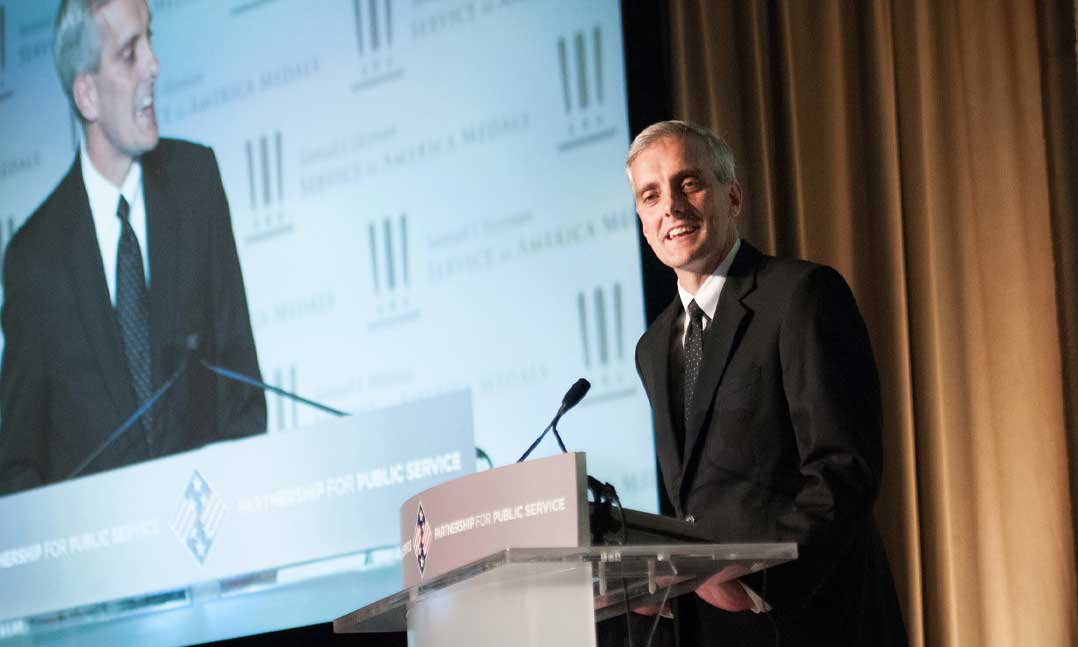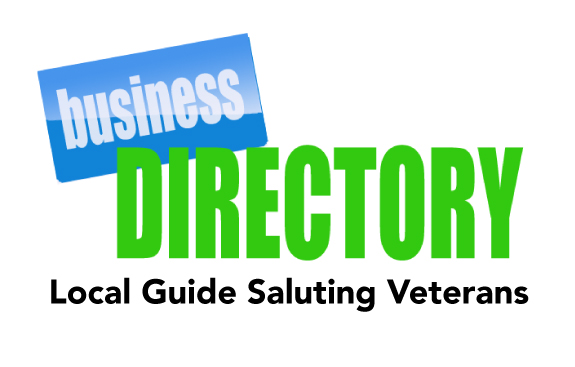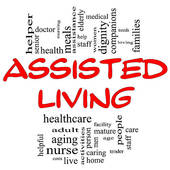News
VAntage Point
As a member of what will be the most diverse White House Cabinet in history, I am honored to lead VA. We are charged with caring for Veterans, their families, caregivers and survivors. We will accomplish our mission by always putting Veterans first. I take full responsibility to ensure that our employees have everything they need to carry out the important work before us and that we operate in a culture that celebrates and draws strength from our country’s great diversity.
This means that all VA staff, patients, their families, caregivers, survivors, visitors and advocates must feel safe in a workplace free of harassment and discrimination. I will not accept discrimination, harassment, or assault at any level or at any facility within VA. We will provide a safe, inclusive, equitable environment for all employees and the Veterans we serve.
To ensure a welcoming environment for Veterans, we must foster fair and inclusive VA workplaces where the experiences and perspectives of our diverse employees are valued. The success of our mission depends on everyone being able to contribute their expertise, experience, talents, ideas and perspectives. I commit to advancing equity in VA and providing all employees with opportunities to reach their full potential; I commit to these principles and will make sure that my senior leadership team reflects and embeds them in everything that we do.
One manifestation of that will be the Department’s commitment to equal employment opportunity, maintaining a workplace free of unlawful discrimination, harassment and retaliation, and creating a workplace that promotes equity, diversity and inclusion. All employees, regardless of race, color, religion, national origin, sex (including gender identity, transgender status and sexual orientation), pregnancy, age (40 or older), disability, genetic information, marital status, parental status, or political affiliation will have an equitable and inclusive workplace free from unlawful discrimination, harassment and retaliation.
I will hold all VA managers and supervisors accountable for maintaining this safe and civil environment, and I will instruct them to review my policy statement with staff and colleagues to reinforce these expectations. These protections will guide all management practices.
VA and our Nation face great challenges made even more daunting by the COVID-19 pandemic. These challenges make it even more important that we have workplaces where everyone is treated well. I am committed to ensuring that employees have what they need to serve our Nation’s Veterans as well as those Veterans who have served us. As Americans, we owe a profound debt of gratitude to those who have worn our Nation’s uniforms.
Based in Washington state, Freedom Sisters Media is a multi-media company focused solely on women vets and offering guidance for success in life
VFW Magazine
Kerri Jeter is on a mission. She is working to tell the empowering stories of her fellow female veterans. On Veterans Day 2019 she launched Freedom Sisters Media to do just that.
This faith-based, multi-media company shares the successes of women veterans via the internet. Through the Freedom Sisters podcast, which airs weekly, Jeter highlights the successes of her “sisters” who served in the military.
“The conversations have been authentic, real, transparent and vulnerable,” said Jeter, a mother of five. “The show can be summed up like this: It’s women veterans’ soulful stories that help others overcome, heal and thrive.”
Jeter, who served from 2012-2013 at Camp Buehring in Kuwait with the Army National Guard’s 35th Combat Aviation Brigade, said she finds her podcast guests through her network of fellow veterans and following specific hashtags on social media.
“No matter how different the stories are week to week, the common thread is sisterhood, hope and healing,” said Jeter, a member of VFW Post 5878 in Tenino, Wash. “No topic is off the table. This is real life, and our sisters are real ‘sheroes.’ ”
From her interviews each week, Jeter discovered common themes among female vet entrepreneurs and nonprofit leaders: lack of funding, marketing, connection and networking. To address these issues, Freedom Sisters Magazine launched in January.
Jeter put a call out on LinkedIn and Instagram and ended up with 30 female vets to write for the magazine. She calls her team “writeHers.”
Magazine “readHers” will find practical tools, skill-sharing and knowledge to succeed in whatever endeavors lay ahead, Jeter said.
The digital magazine app is available for subscription on iOS and Android. Subscribers get their first issue for free. ‘That Wasn’t Okay with Me’The road to Freedom Sisters started when Jeter enlisted on Dec. 5, 2006. A single mom with three kids, Jeter said she wanted to better her life for her children and herself.
When she deployed to Kuwait in 2012, she was apart from her children for 18 months. She tried to make the best of it at Camp Buehring. While others were on the receiving end of care packages, Jeter was making care packages from things she bought at various markets and sending to her kids back home.
“It was nerve-wracking because I was their primary caregiver,” Jeter said. “It was difficult, but I was really focused on my job and was promoted to captain during that time.”
In 2015, Jeter was crowned Ms. Veteran America. During her reign, Jeter realized that the stories being reported about female vets simply weren’t accurate.
“The stories are about our pain points or that we are all damsels in distress,” Jeter said. “That wasn’t okay with me.”
When she left the National Guard, Jeter was re-married and had a “surprise” baby. She took a year off but felt “called by God” to serve women vets.
“I just thought, ‘There has to be more to what I was called to do,’” Jeter remembered. “One night, I went to bed in distress and had a dream about the words ‘Freedom Sisters.’ When I woke up, I looked up the domain name and found it was available. We launched on Veterans Day 2019.”
Jeter and her husband are both active members of Post 5878. While campaigning for Ms. Veteran America, Jeter said the Post kept inviting her back to speak about homeless women veterans. Currently, her husband, Marcellus, is junior vice commander.
To learn more about Freedom Sisters Media, visit freedomsisters.com.
This article is featured in the March 2021 issue of VFW magazine as part of our spotlight on women veterans for Women's History Month, and was written by Janie Dyhouse, senior editor for VFW magazine.
WASHINGTON — The American Rescue Plan (ARP) Act of 2021, signed into law March 11 by President Joseph R. Biden, Jr., equips the Department of Veterans Affairs (VA) to ensure Veterans have continued access to quality health care and protections against COVID-19, as well as providing needed economic relief.
The $1.9 trillion coronavirus economic relief package for Americans allocates $17 billion in support of VA’s nationwide response to the pandemic.
“Like other hard-working Americans, Veterans have been severely impacted by the coronavirus pandemic,” said VA Secretary Denis McDonough. “Countless Veterans have lost jobs, closed businesses, home-schooled children and faced uncertain prospects while our nation grapples with this health crisis. The American Rescue Plan is a significant piece of legislation that helps VA deliver on the president’s promise of caring for the men and women who served our great nation, especially during this unanticipated and challenging time.”
Outlined for VA in the American Rescue Plan:
$14.5 billion for COVID-19 related health care, including information technology and facility requirements, ensuring access for 9.2 million enrolled Veterans who may have delayed care or have more complex health care needs as a result of the pandemic, as well as resources for Veterans currently receiving housing support and an estimated 37,000 homeless Veterans.
$1 billion for debt forgiveness related to copayments or other cost sharing Veterans paid for VA health care and to reimburse Veterans who paid a copay or other cost sharing, for care and prescriptions provided from April 6, 2020 through Sept. 30, 2021.
$750 million for both construction grants ($500 million) and payments ($250 million) to State Homes to greatly improve the living conditions of our most vulnerable Veterans who reside in these facilities.
$386 million to initiate a COVID–19 Veteran Rapid Retraining Assistance Program that provides up to 12 months of training and employment assistance for unemployed Veterans to enter high demand occupations.
$262 million to reduce the backlog of compensation and pension claims, which has grown from 76,000 in March 2020 to more than 212,000 in March 2021. The ARP funding will enable the Veterans Benefits Administration to reduce the claims backlog to around 100,000 by September 2022.
$100 million to facilitate the modernization of VA’s badly antiquated supply chain system by accelerating the Department’s transition to the Defense Medical Logistics Standard Support.
$80 million to establish the Department of Veterans Affairs Employee Leave Fund, which provides funds for paid leave for COVID-19 related causes.
$10 million to decrease the Board of Veterans’ Appeals hearing requests (currently 87,499) and intake (35,000 appeals) backlogs. These efforts help Veterans economically by resolving their VA appeals and allowing them to begin receiving compensation and services.
Additional American Rescue Plan support:
Veterans experiencing unemployment and other financial hardships may also qualify for further assistance in the form of extension of unemployment insurance benefits and eligibility, stimulus checks, or expansion of Supplemental Nutrition Assistance Program (SNAP) and Temporary Assistance for Needy Families (TANF) benefits.
Veterans with children could benefit from additional stimulus payments, an increased child tax credit and expanded childcare tax credits.
Veterans are prioritized for the $28.6B Restaurant Revitalization Grants in the Small Business Administration’s Restaurant Revitalization Fund. During the initial 21-day period in which the Small Business Administration (SBA) awards grants under this program, SBA will prioritize awarding grants to eligible entities that are owned and controlled by Veterans.
Helps small businesses in economically disadvantaged areas keep front line state and local public workers on the job and paid and help public transit agencies avoid layoffs and service reductions.
Assists communities disproportionately impacted by the pandemic, many of which are Veterans living in diverse communities across the country. Women and racial/ethnic minorities are becoming the fastest-growing populations of Veterans, as the COVID-19 pandemic and corresponding economic crisis have hit communities of color and women particularly hard.
Provides emergency funding for community investments to ease challenges experienced by many American Indian/Alaska Native Veterans and their families and provide much needed relief to embark on the long road to healing in the aftermath of tremendous losses during the pandemic.
Closes what is known as the “90/10 loophole” to protect the integrity of the GI Bill and Veterans in receipt of their well-earned educational benefits.
Learn more about the American Rescue Plan.
(VAntage Point)
After almost a year of disconnection, desperation, loss, isolation, and numbness because of the COVID-19 pandemic, there is now more hope and positivity around us. We have new weapons in the war against the pandemic – three safe and proven vaccines that can significantly protect us from hospitalization and death caused by the coronavirus.
This good news means that now is the time for VA to evaluate the lessons it has learned in the past year: the processes we’ve developed to provide efficient, optimal care to Veterans, and how we’ve recalibrated to improve the nation’s largest integrated health care system. But, how else can we best serve our Veterans for the many years to come?
The first step is listening to you – tuning into your thoughts, opinions, ideas, needs, feelings and suggestions for building a VA that best serves our mission. You are what’s most important to VA’s future, and your opinion is the most valued.
We want to hear from you
VA will be holding public virtual listening sessions across the country from March 2021 through June 2021. We want to hear the voices and insights of Veterans and the communities that VA serves. We are hosting these sessions to learn from you how we should design a health care system of the future, and how to grow its services for Veterans in a way that also reinforces VA’s role as a leader in U.S. health care.
Your feedback will be used to develop the recommendations that VA submits to the Asset and Infrastructure Review (AIR) Commission in January 2022. The AIR Commission will also conduct public hearings as part of its review of VA’s recommendations before submitting those recommendations to the President and Congress for review and approval in 2023.
These listening sessions represent an exciting opportunity for Veterans to help VA reimagine how we deliver care in an equitable, high quality, Veteran-centered manner and to develop a plan for investing in VA’s aging infrastructure. It won’t be just talk – we are committed to modernizing VA significantly and we want to make sure we are in close step with the Veterans we serve.
Now is the time to help determine the future of VA. We can’t do it without you.
Where and how
Additional information, including session dates, times, and registration information, is available at https://www.va.gov/HEALTHPOLICYPLANNING/listening.asp.
Dr. Richard Stone is acting under secretary of health for the Veterans Health Administration. He is a retired Army major general and Veteran of the war in Afghanistan.
By J.P. Lawrence/Stars and Stripes
Troops exposed to shockwaves from bomb blasts may be at higher risk for developing Alzheimer’s disease and other neurological issues, even if they haven’t suffered a traumatic brain injury, recent Army-funded research suggests.
Researchers at the University of North Carolina at Pembroke found that even small explosions — ones unlikely to cause concussions or injuries — change the molecular structure of the brain, a study published last week in the journal Brain Pathology found.
“This finding may explain those many blast-exposed individuals returning from war zones with no detectable brain injury, but who still suffer from persistent neurological symptoms, including depression, headaches, irritability and memory problems,” Ben Bahr, professor of molecular biology and biochemistry at UNC-Pembroke, said in an Army statement.
Explosions from roadside bombs, rockets and mortar rounds have affected many deployed troops in Afghanistan, Iraq and elsewhere in the past 20 years. Traumatic brain injuries and concussions from these blasts often lead to problems with sleep and memory, and sometimes to depression that leads to suicide.
Long-term issues can arise from blasts that troops might not recognize as harmful at the time, Bahr said.
“Our interest was focused on the effects of low-level blast waves that soldiers can experience during training and in war zones ... where nearby explosions can cause blast waves that can knock soldiers to their knees but they are able to get back up with no obvious injury to the body or brain,” Bahr said in an email.
To test the impact of explosions on troops, researchers used slices of rat brains, specifically from the hippocampus, which plays an important role in learning and memory.
They placed the brain tissue into a makeshift skull: an aquarium filled with warm water. Seven inches away from the aquarium was a 1.7-gram explosive charge, capable of a “seemingly innocuous level of blast wave intensity,” Bahr said.
The explosion produced a blast wave that pulsed through the air, the tank and then through the water before reaching the brain tissue.
The blast damaged the hippocampus and diminished electrical activity between neurons, said Frederick Gregory, program manager for the Army Research Office, which funded the research.
“You start seeing the development of proteins associated with Alzheimer’s plaque, as well as a loss in proteins you need to maintain your synaptic connections to your neurons,” Gregory said in a phone call. These effects could be seen after only one blast, with further explosions showing cumulative damage, he said.
The research also involved the Development Command Army Research Laboratory and the National Institutes of Health.
Researchers said they plan to look at the effects of blasts on other parts of the brain.
“Early detection of this measurable deterioration could improve diagnoses and treatment of recurring neuropsychiatric impediments, and reduce the risk of developing dementia and Alzheimer’s disease later in life,” Bahr said in the Army statement.
Photo Credit: National Guard
WASHINGTON — All Veterans insured under Veterans’ Group Life Insurance (VGLI) will receive a reduction in premiums effective April 1, ensuring that VGLI remains a cost effective option for Veterans and transitioning uniform service members who choose Department of Veterans Affairs (VA) insurance products.
Premiums for VGLI will be reduced by an average of 7% across all age groups — allowing separating service members to continue their Servicemembers’ Group Life Insurance coverage level as a renewable term insurance policy after leaving service.
“The reduction in VGLI premiums will make life insurance even more affordable for Veterans,” said Acting Under Secretary for Benefits Thomas Murphy. “Offering our Veterans better rates for their life insurance as they transition to civilian life is just one effort the department is taking to address the needs of our customers.”
While any separating service member who has SGLI coverage upon separation is eligible to sign up for VGLI after separation, they must submit their application and initial premium within 240 days after leaving the military to apply without proof of good health. Those who apply after the 240-day period but before the deadline of one year and 120 days from separation will need to submit proof of good health by completing a questionnaire regarding medical conditions.
Additionally, due to the COVID-19 pandemic, VA is temporarily extending the application deadlines for VGLI by an additional 90 days beyond the initial 240-day period and the one year and 120 day-period, referenced above, to offer more flexibility to separating service members. This enrollment extension will remain in effect until June 2021.
Learn more about VA Insurance, the new VGLI rates, calculating your insurance needs and opening an application.
(The American Legion)
The American Legion called on President Biden to issue an Executive Order authorizing the reinstitution of the United States Citizenship and Immigration Services (USCIS) for Naturalization at Basic Training Initiative and reopening all USCIS field offices abroad for servicemembers and deported veterans.
“The American Legion believes that non-citizen veterans who are honorably discharged and have not been charged or convicted with felonious or heinous crimes should be guaranteed the promise they were made of citizenship,” said James W. “Bill” Oxford, national commander of The American Legion.
Current citizenship status and deportation have no impact on a veteran’s eligibility for receiving benefits through the Department of Veterans Affairs (VA) and veterans who have been deported remain eligible for VA services and care. However, ensuring these veterans are receiving the care they have earned through service is difficult. The American Legion recommended to the White House that VA assess barriers to care for these veterans and develop a plan to address this issue.
The American Legion’s National Executive Committee passed two resolutions in 2018 that affirmed the organizaztion’s dedication in advocating for the rights of servicemembers who seek citizenship during their military service, as well as those of veterans who have been deported.
Resolution No. 15: Expedited Citizenship Through Military Service, urges Congress to implement measures within the Department of Defense to ensure the process of naturalization through honorable military service is completed prior to discharge. Resolution No. 10: Expedited Citizenship Applications For Deported Veterans, calls on the federal government to grant expedited citizenship applications to deported veterans who were honorably discharged and have no felony convictions.
“It is imperative that we strengthen military naturalization programs, prevent veteran deportation, and repatriate deported veterans. These policies would protect our servicemembers and veterans permanently with recognition for their honorable service to the United States,” Oxford concluded.
Photo Credit: A deployed National Guard soldier takes the oath of allegiance during a naturalization ceremony. U.S. Army photo.
WASHINGTON — This February the Department of Veterans Affairs (VA) launched Ethics Principles for Access to and Use of Veteran Data as part of ongoing efforts to protect Veteran data.
The new online resource outlines nine principles for communicating clear expectations on how Veteran data is to be managed and viewed by Veterans, staff, VA partners and other stakeholders.
These principles reinforce VA’s standards of data privacy and protection maintained during VA’s distribution of nearly 2 million COVID-19 vaccinations to date, and other critical health care services during the coronavirus pandemic.
“VA’s principle-based ethics framework takes a proactive approach to data management and privacy by setting standards for our partners to follow,” says Acting VA Under Secretary for Health Richard Stone, M.D. “VA is applying this framework to all data interoperability initiatives, including those tied to our COVID-19 response and modernization efforts.”
Having clearly defined integrities for everyone who accesses or uses Veteran data puts VA at the forefront of organizational responsibility for ethical data practices. Veterans trust VA to promote and respect their privacy, confidentiality and autonomy within the services the department provides and supports. The department will continue to uphold that trust by remaining consistent with VA’s I-CARE values of integrity, commitment, advocacy, respect and excellence to promote and ensure responsible practices whenever Veteran data is accessed or used.
The ethics framework was developed by the Data Ethics Work Group established by the VA Interoperability Leadership team and the Veterans Health Administration’s (VHA) National Center for Ethics in Health Care, along with input from Veterans. The department is actively working to ensure all VA directives, policies and standards reflect these principles which the agency anticipates completing by the end of 2022.
Learn more about VA’s COVID-19 vaccination response and how VHA’s National Center for Ethics in Health Care continues to work proactively to build trust in managing access and use of Veteran data.
WASHINGTON — The Department of Veterans Affairs (VA) will extend the existing moratorium on evictions and foreclosures, as well as extend VA loan forbearance requests, to June 30, because of COVID-19.
The current moratorium extensions for evictions and foreclosures were set to end March 31.
“We will do everything in our power to help Veterans, their families, survivors and our caregivers get through this pandemic,” said VA Secretary Denis McDonough. “The department’s moratorium and forbearance extensions support President Biden’s Jan. 22 Executive Order to deliver economic relief to Americans amid the COVID-19 crisis by addressing economic hardships the Veteran community faces, through no fault of its own, during the ongoing pandemic.”
VA borrowers experiencing financial hardship due to COVID-19 can review VA guidance for borrowers or call 877-827-3702 for additional information.
(VFW Magazine)
WASHINGTON – Today the Senate confirmed the appointment of Denis McDonough, making him the new Veterans Affairs Secretary.
A native of Stillwater, Minnesota, Mr. McDonough graduated from Saint John's University in 1992 and Georgetown University's Edmund A. Walsh School of Foreign Service with an MSFS degree in 1996. McDonough has extensive experience on Capitol Hill having served as White House chief of staff under President Barack Obama, deputy national security advisor and chief of staff of the National Security Council.
As White House chief of staff, McDonough exhibited his commitment to veterans by working closely with the VA and Congress to address the many challenges and obstacles veterans face in receiving veteran’s health care services from the VA.
“The VFW believes today’s confirmation of Mr. McDonough will allow the Department of Veterans Affairs to leverage his years of government leadership experience to rebuild trust and confidence in quality VA care throughout the veteran community, especially during these uncertain times,” said Hal Roesch, VFW national commander. “The VFW looks forward to working closely with Mr. McDonough to ensure the VA can continue its aggressive fight against COVID-19, and to improve the delivery of care and benefits to our nation’s heroes.”
